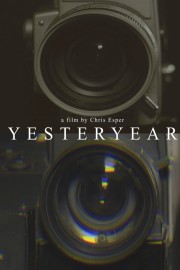Yesteryear (Short)
Chris Esper goes straight for the heart as a filmmaker. It’s one of his greatest strengths, whether it’s something more meditative or narrative-driven, his goal is to make us feel, and open up to films. In “Yesteryear,” he does this by diving into home movies, many his own from his family’s history, and it’s hard not to look at what he’s put together, and think back on our lives, and our family. In this 14-minute montage of home movie footage, Esper wants to explore the idea of reflecting on “simpler times,” and the past, during an uncertain moment in history. We often associate “simpler times” with when we were growing up, and Esper makes that explicit in his approach in this film. We see children growing up, parents having fun being parents, and people experiencing what it means to be parents, and trying to capture that on film in a way that they will remember forever, or be able to reflect on. We didn’t really do home movies growing up in my family, but I remember many of my own experiences vividly watching “Yesteryear.” I remember Christmases and times with families and friends. I remember my Eagle Scout Court of Honor and times from marching band. I remember Christmas gifts and times I went to amusement parks with my parents. I remember days I’d like to forget, and days I never want to forget. I remember my life, and see it reflected in the people whose lives are captured for all-time in “Yesteryear,” even if the exact experiences are not our own. In this film, Esper doesn’t just want us to feel, but to remember, and to feel what it means to remember moments in our lives that made us happy, made us thankful, made us feel loved, and made us feel like we were experiencing life rather than just walking through it trying to make it through the day or keep food on the table. A movie like “Yesteryear” is a reminder that life is more than just what we have to do in the present, but looking at the past, and seeing how we can take that into the future.










